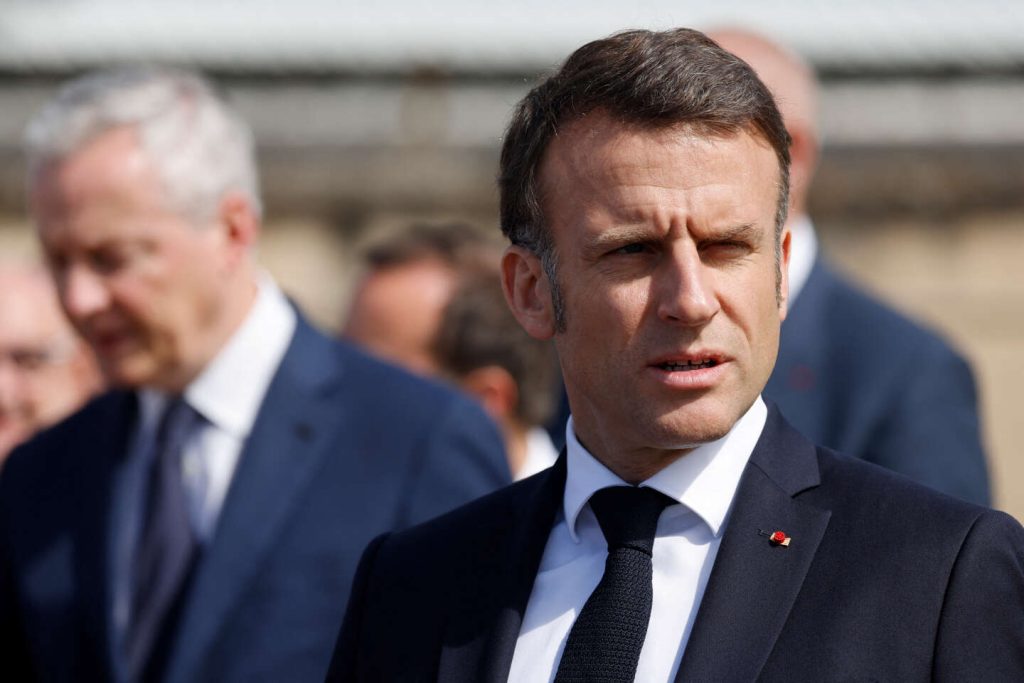French President Emmanuel Macron and Minister of Economy and Finance Bruno Le Maire visited an Eurenco factory in Bergerac, France on April 11, 2024. Macron stated that he was ruling out the possibility of increasing taxes to address a larger-than-expected deficit. He emphasized the importance of sticking to the government’s economic strategy, which he believes is producing positive results, such as low unemployment and the revitalization of public services. Macron stressed that raising taxes would undermine public and business confidence, and he reiterated his commitment to maintaining trust among households, companies, and international partners.
France announced a projected public deficit of 5.1% of GDP for 2024, higher than initially expected, which will require an additional 10 billion euros to be found this year in order to reduce the deficit to 2.9% of GDP by 2027. The increased deficit for 2024, initially forecasted at 4.4%, was attributed to a significant overshoot in 2023, when it reached 5.5% of GDP instead of the predicted 4.9%, due to lower than expected revenues. Macron defended his economic strategy in front of Le Maire, denying any disagreements between them and emphasizing that the strategy was not flawed, but rather yielding positive outcomes in terms of economic attractiveness, growth, job creation, and alignment with other European countries.
Despite the challenging economic situation, Macron remained optimistic about France’s economic performance within the Eurozone, highlighting the country’s competitive position, strong growth, job creation, and convergence with other nations in the region. He maintained that these achievements must be preserved and that his administration was committed to continuing its current economic strategy. Macron’s remarks came in response to concerns about the impact of the large deficit on the country’s growth, with warnings that the government’s cost-cutting measures could negatively affect economic recovery. Nevertheless, Macron defended his approach, emphasizing the importance of maintaining momentum and not resorting to tax increases to address short-term economic challenges.
The French government’s revised deficit projections for 2024 and the need for additional funds to meet the new targets underscored the challenges facing the country’s economic recovery. Macron’s visit to the Eurenco factory in Bergerac was part of his efforts to highlight the importance of continued investment in industries to drive economic growth and job creation. Despite the setback of a higher deficit, Macron remained resolute in his commitment to maintaining the focus on employment, industrial revitalization, and public service strengthening, without resorting to tax hikes. The government’s economic strategy will continue to be guided by Macron’s vision of a competitive and growth-oriented economy that benefits households, businesses, and international partners alike.















